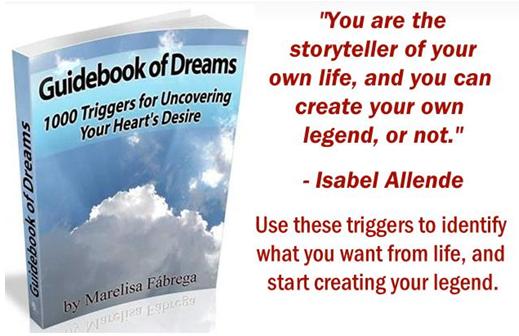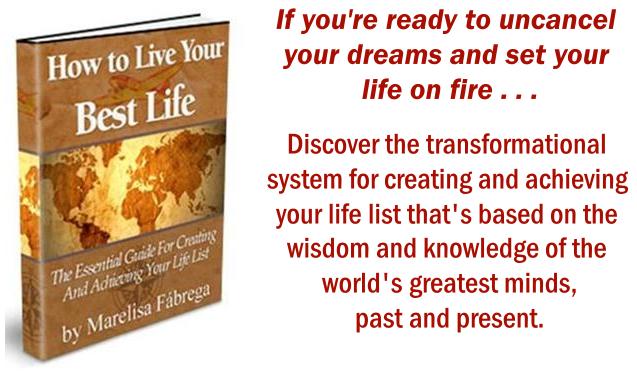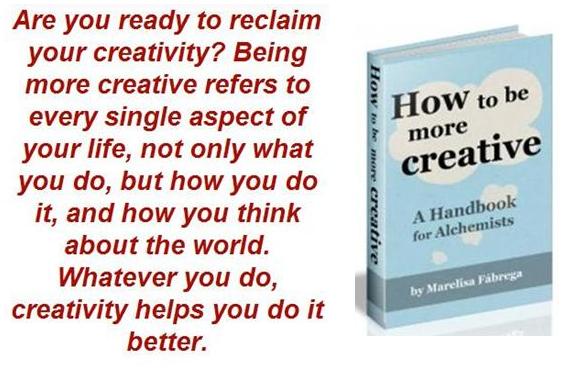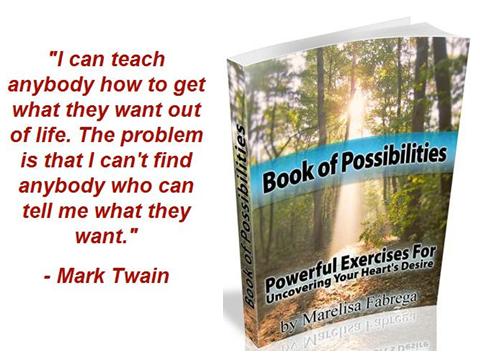 A few years back I watched a movie called “The Village”.
A few years back I watched a movie called “The Village”.
It was a psychological thriller about an end-of-the-19th-century village whose inhabitants never ventured beyond the village limits for fear of the creatures that inhabited the surrounding woods. They referred to the creatures as “Those We Do Not Speak Of”.
Later in the movie it becomes clear that there were no creatures in the woods. The creatures were boogeymen—or a farce—created by the village Elders to keep the young people from leaving the village.
Limiting beliefs are a lot like “Those We Do Not Speak Of”. They’re just figments of our imagination—a lot of the time put there by others—that keep us trapped in our comfort zone and prevent us from trying new things and taking risks for fear of getting hurt.
We can have limiting beliefs about anything. Here are three examples:
- Limiting beliefs about money.
- Limiting beliefs about success.
- Limiting beliefs about relationships.
If you’re having trouble in a certain area of your life, ask yourself what you’re saying to yourself about that area. Anything that you say to yourself to try to justify why you’re not getting what you want in that area of your life is a limiting belief. Here are some examples:
- I’ll never have money; I’m just not smart enough to figure out how to be prosperous.
- I’ll never be successful, no matter how hard I try; life just isn’t fair for people like me.
- I’ll never be in a good relationship; women just want men with money.
The reason why limiting beliefs are so pervasive is that they seem real to you. In addition, it’s very likely that you’ll be able to find evidence to support your limiting beliefs.
In “The Village”, the Elders had created elaborate costumes of fearsome creatures with gruesome faces and large hands with sharp claws. Periodically they would put on the costumes and walk along the edges of the village where the young people could see them. This kept the young people in fear of leaving the village: even though it was just the Elders dressed up in costumes, to the young people “Those We Do Not Speak Of” looked very real.
If there are certain areas in your life in which you’re not getting what you want, you need to identify the limiting beliefs that are holding you back, and replace those limiting beliefs with empowering beliefs. Below you’ll discover four strategies for overcoming limiting beliefs.
First Strategy for Overcoming Limiting Beliefs: Journaling
You can’t overcome your limiting beliefs if you don’t know what they are. Therefore, the first step that you need to take in order to let go of limiting beliefs is to bring the sneaky little devils to the surface. You can do this by journaling.
You’re going to sit down for a block of time which can range anywhere from half-an-hour to forty-five minutes. Choose an area of your life that’s not working out for you at the moment and write down your current situation. Then ask yourself how you got to this point.
As an illustration, if you’re currently going through a difficult situation regarding money, ask yourself questions such as the following:
- What would someone have to believe about money to be in this situation?
- Why do I believe that?
- How do I act when it comes to money?
- Why do I act that way?
- How do I feel about money?
- Why do I feel that way?
- How do I feel about my financial situation?
- How would I describe how I act around money (generous, stingy, thrifty, extravagant, responsible, careless, fearful, and so on)?
Journaling will help you to make your limiting beliefs come up to the surface.
Second Strategy for Overcoming Limiting Beliefs: Use the Power of Observation
A great way to overcome negative beliefs is to observe the behavior of others. Observing other people can serve two different purposes. First, it can help you to uncover beliefs about yourself that you’re unaware that you have. Sometimes it’s hard to notice certain behaviors or reactions in ourselves. However, when we see someone else doing it we can say, “Yeah, I do that too.”
Second, by watching others who are currently succeeding in a life area in which you’re doing poorly you can begin to uncover the beliefs that lead to success in that life area, and which you can begin to adopt for yourself.
Third Strategy for Overcoming Negative Beliefs: Be Your Own Mentor
Pretend that you’re sitting across from your future self. Your future self is kind and wise. In addition, they’ve achieved everything that they wanted in life. Your future self is going to act as your mentor.
Tell your future self about an area of your life in which you’re currently having trouble. Ask your future self to help you with all of the following:
- Uncover the limiting beliefs that are keeping you stuck in your current situation. For example, your future self can you uncover that you think that you can’t leave a job that you hate because you feel that it’s the best job that someone with your limited mental abilities can hope for. After all, you’re not very smart.
- Identify how you formed that limiting belief. To continue with our illustration, you and your future self may conclude that you formed the belief that you’re not very bright because your father was always telling you that you’re stupid.
- Find a different interpretation for the situation that gave rise to the limiting belief. For example, if you uncover that you believe that you’re stupid because your father would constantly call you “dummy” or “idiot” when you were growing up, your future self can help you realize that your father called you names because he was angry and frustrated due to his inability to get what he wanted from life. It had nothing to do with your intellectual ability.
- Based on your new interpretations, have your future self help you to come up with a new set of beliefs.
Fourth Strategy for Overcoming Limiting Beliefs: Act As If
Once you’ve uncovered a positive belief which you would like to adopt for yourself—by observing those who are succeeding in areas in which you’re currently failing miserably, and by having a conversation with your future self—you need to start acting “as if”. That is, act as if the positive belief is true. Look at the following:
- If you believed that you’re smart enough to make lots of money, what would you do?
- If you believed that there are opportunities everywhere, and that they’re available to anyone who’s willing to pick the opportunity up off the floor and run with it, what would you do differently?
- If you believed that there are women out there who value integrity, a good sense of humor, and loyalty over power and money, what would you do?
Now, get out there and do it. Until you can get yourself to truly embrace the new belief, act as if.
Conclusion
The next time that you find yourself holding back due to limiting beliefs, keep telling yourself that there are no creatures in the woods. Then, use the strategies explained above to overcome your limiting beliefs. Live your best life by overcoming the limiting beliefs that keep you locked up within your current comfort zone.



Related Posts:
- 35 Powerful Beliefs About Money: From Trump to the Dalai Lama
- 24 Surefire Ways to Get Your Mojo Back
- 8 Ways to Release the Ghosts of the Past and Be Happy in the Present
- 13 Ways to Bring More Mindfulness Into Your Life
Did you enjoy this article? Subscribe to “Daring to Live Fully” by RSS or by email, and get free updates.








 Marelisa Fabrega is a lawyer and entrepreneur. She holds a Bachelor of Science in Business Administration from Georgetown University in Washington, D.C., as well as a Juris Doctor from the Georgetown University Law Center. You can learn more about her
Marelisa Fabrega is a lawyer and entrepreneur. She holds a Bachelor of Science in Business Administration from Georgetown University in Washington, D.C., as well as a Juris Doctor from the Georgetown University Law Center. You can learn more about her 






Comments on this entry are closed.
love your articles Marelisa!!! keep it up!!!
your thoughts are very clear and attractive, that is what i found them to be in the above article!!
Thank you, Sangeeta. I’m glad that you find my articles useful. Marelisa
Great post, Marelisa.
One thing I found that’ effective in combatting limiting belief aside from the three you mentioned above is being aware that our belief is mostly our interpretation of events.
It is something I learnt from Morty Lefkoe and when you think about it, it really makes sense.